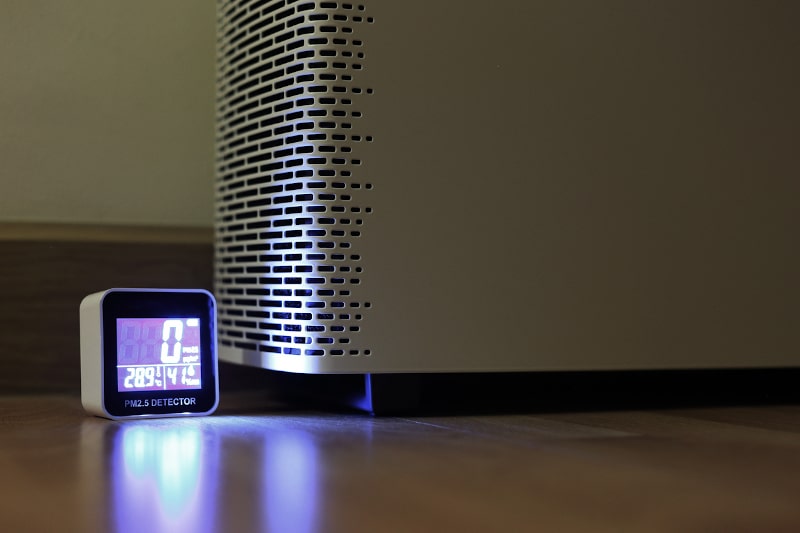Because of all the pollen and other allergens in the air, most people think of spring and summer as the most difficult seasons for those seeking to maintain indoor air quality (IAQ). However, the winter can pose a unique set of IAQ challenges for residents of Baltimore, MD. Here are a few ways IAQ may worsen during the winter.
Inadequate Ventilation
Once the weather turns cold, you’ll probably keep your windows shut all day to hold in heat, which will decrease the ventilation in your home. This makes it easier for airborne pollutants, including dust and fumes from volatile organic compounds and many other things, to accumulate in your air. And, since your HVAC system has such a significant role in filtration, it’s important that your system receives regular maintenance, to sustain proper airflow and remain in good working order.
As your HVAC system circulates the air in your home, it will also pass it through its air filters, which play a direct role in keeping IAQ high. To maximize this effect, change your system’s air filters at least once every 90 days. Finally, you may want to buy an air purifier that uses HEPA filters since these tools can remove up to 99.7% of all particulate waste, 0.3 microns in diameter or larger, from the air.
Pet Dander
During the cold weather, your pets may not want to spend as much time outdoors. Pet dander is always a threat to your IAQ, but because of the relatively poor indoor ventilation during the winter and the increased presence of pets, it can aggravate allergies and pre-existing respiratory issues. If you already have pre-existing allergies, this can make life especially difficult for you.
This makes it essential to clean and brush your pets carefully. You should also thoroughly vacuum your carpets and furniture upholstery.
Volatile Organic Compounds (VOCs)
Poor ventilation can increase the duration of your exposure to VOCs. When you use things like cleaners, paints, paint strippers, wood finishers, air fresheners, pesticides, and cleaning products, these chemicals may emerge as incidental byproducts.
Closed windows during the winter may lead to higher concentrations of VOCs in the air. This is a problem because inhaling VOCs can lead to headaches, dizziness, fainting, vomiting, nosebleeds, sinus irritation, allergic reactions, and other nasty consequences.
Carbon Monoxide
Carbon monoxide is a highly toxic gas whose presence in your home can be fatal. The probability that this gas will find its way into your home rises markedly during the winter because carbon monoxide is a byproduct of fuel combustion. Therefore, a malfunctioning, improperly installed, or poorly maintained furnace or other combustion-reliant appliance can sometimes release it through gaps in the exhaust or other leaks.
Thankfully, a blue pilot light in modern furnaces should turn yellow when the unit isn’t burning fuel completely. This may happen when the pilot air intake valve is dirty, resulting in insufficient oxygen to burn the fuel.
Stoves, space heaters, water heaters, boilers, and gas furnaces can leak odorless carbon monoxide, and you’re likely to use many of these appliances during the winter. This gas may cause shortness of breath, headaches, dizziness, fainting, coma, and death. Anyone using gas appliances should install a carbon monoxide detector in the home.
If you detect carbon monoxide in your home, leave immediately. When you are safe, request professional assistance as soon as you can.
Dry Air
Cold air tends to be much dryer than warm air. Dry air can irritate and crack your skin and lips. It will also make you more vulnerable to viral infections like the flu.
Though the winter presents a few unique threats to IAQ, none of these are insurmountable or a cause for worry. This winter, the first step to breathing easy in Baltimore, MD, is to be aware of the IAQ challenges. Then, call Griffith Energy Services, Inc. and request more information about our innovative indoor air quality products.
Image provided by iStock




